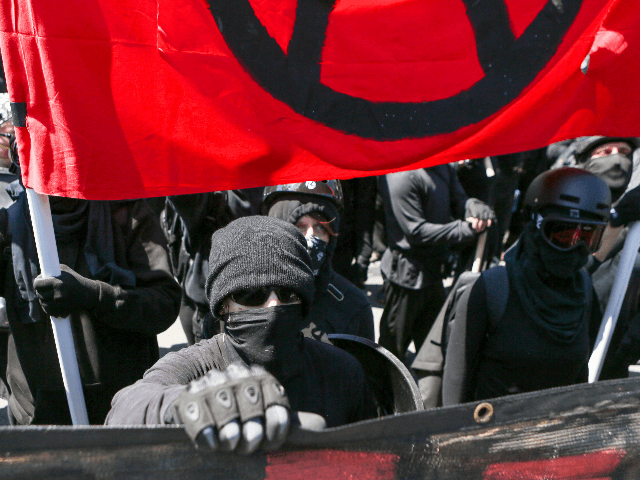Senators Ted Cruz (R-TX) and Bill Cassidy, M.D. (R-LA) introduced a resolution Thursday that would label Antifa a “domestic terrorist organization.”
“Whereas members of Antifa, because they believe that free speech is equivalent to violence, have used threats of violence in the pursuit of suppressing opposing political ideologies,” the resolution states.
The resolution continues:
Whereas Antifa represents opposition to the democratic ideals of peaceful assembly and free speech for all; Whereas members of Antifa have physically assaulted journalists and other individuals during protests and riots in Berkeley, California; Whereas in February of 2018, journalist Andy Ngo was intimidated and threatened with violence by protestors affiliated with Antifa.
Cruz wrote on Twitter Thursday that the group is a “terrorist organization composed of hateful, intolerant radicals who pursue their extreme agenda through aggressive violence.”
Cassidy echoed his colleague’s statements in a press release Thursday.
“Antifa are terrorists, violent masked bullies who ‘fight fascism’ with actual fascism, protected by Liberal privilege,” he said. “Bullies get their way until someone says no. Elected officials must have courage, not cowardice, to prevent terror.”
The resolution also specifically mentions the attack on journalist Andy Ngo in Portland, Oregon, in June.
“Whereas on June 29, 2019, while covering demonstrations in Portland, Oregon, journalist Andy Ngo was physically attacked by protestors affiliated with Antifa,” the resolution states.
However, there is currently no crime labeled “domestic terrorism” but the designation does allow law enforcement to investigate a suspect’s associates and affiliations, the Hill reports.
Critics argue that since Antifa does not have a formal organizational structure, labeling a group “domestic terrorists” could be the beginning of “overly broad” enforcement.
“It is dangerous and overly broad to use labels that are disconnected [from] actual individual conduct,” said Hina Shamsi, director of the national security project at the American Civil Liberties Union.
“And as we’ve seen how ‘terrorism’ has been used already in this country, any such scheme raises significant due process, equal protection and First Amendment constitutional concerns.” Shamsi concluded.

COMMENTS
Please let us know if you're having issues with commenting.